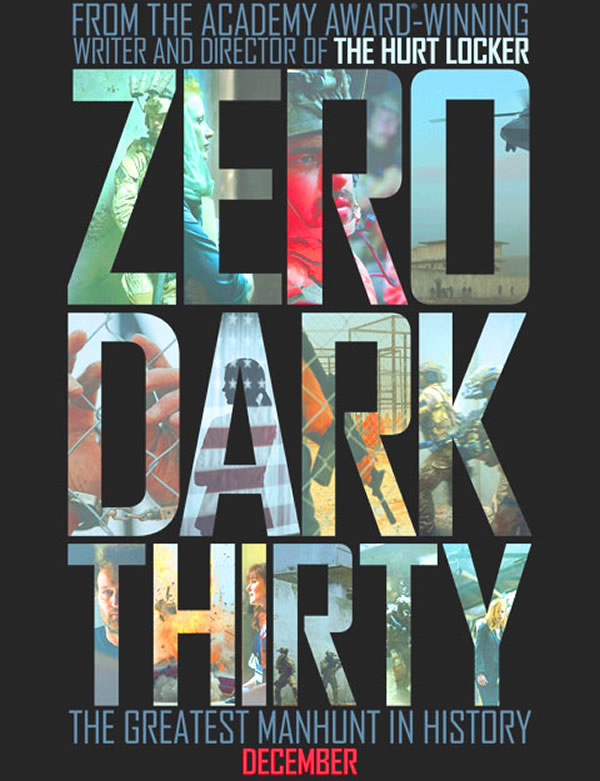As reports, official and unofficial, have come in about Gina Haspel, the nominee to be the next CIA Director, eerie memories began to seep from the back of my mind.
Take, for instance, this passage from a major Newsweek piece, just out:
“She is the woman who keeps the secrets,” Daniel Hoffman, another former senior CIA officer, told Newsweek. “That’s her. She’s the most discreet person I ever worked with.”
Early on, when she signed up in 1985, she chose the clandestine world over a more public life with a husband and children, her colleagues said. Hall recalled asking Haspel what her weekend plans were as a meeting broke up one afternoon. “Steve, come on,” he remembered her saying. “You know that I have no social life. I have no life whatsoever outside of work.”
No life outside of work: I’d heard that before.

In the propaganda biography recently released by the CIA, the Company flacks hauled in Haspel’s near life-size effigy of Johnny Cash to fill this vacancy. If that works for you, okay; for me it only makes the emptiness deeper, and the eerie memories sharper.
I saw all this more than six years ago, in the film Zero Dark Thirty, which was ostensibly a suspense thriller about the hunt for Osama Bin Laden, but was more a probing portrait of Gina Haspel, and the price of “success” in the clandestine world. It remains like the Picture of Dorian Gray, locked away in our national attic, but coming to horrifying life before us this week in Washington.
Yet in the best gothic fashion, there’s a twist in this modern reboot of Oscar Wilde’s tale of narcissistic corruption: as informed sources told the New Yorker‘s Dexter Filkins,
“You are putting a person in a leadership position who was centrally involved in an illegal program,” [John} Sifton [of Human Rights Watch] told me. . . .
The “program” we’re talking about, was torture. Unspeakable acts; did we mention illegal too? Lied about and justified by lawless “leaders.” Filkins continues:
A former government official, who spoke to me on condition of anonymity, said that the promotion of Haspel amounted to the C.I.A.’s revenge. “The agency is giving the finger to anyone who was ever critical of the program,” the former official said. [Emphasis added.]
Yes, in this remake, Dorian Gray, rather than succumbing to his life of clandestine iniquity, may well get the last laugh.
To refresh the reader’s memory, here is the review of Zero Dark Thirty posted after watching it in late 2012.
Originally posted on January 1, 2013
As “Zero Dark Thirty” winds down, after Osama Bin Laden is dead, a big military transport is shown, parked on some windswept desert runway. As CIA agent Maya (Jessica Chastain) climbs into its open maw, the pilot emerges to tell her she’s the only passenger listed for the flight.

“You must be pretty important,” he says. “Where do you wanna go?”
Maya slowly straps herself into a fold-down seat, alone as the plane’s huge cargo door closes out the world beyond its drab, cavernous fuselage. After a moment, a tear slowly trickles from each of her eyes, though she does not sob or lose her composure. “ZD30″ ends a moment later, with Maya staring shakily ahead, still not answering the pilot’s query.
Where does she want to go, indeed? For me, this ending silence was one of the “loudest,” most revealing moments in an often explosively noisy film.

Jessica Chastain
For despite Jessica Chastain’s fine acting, this mute moment framed and underscored her character’s essential emptiness. Maya has already told another female agent, who asked lightly if she had plans to party with some hunky Special Forces dudes after the mission, that she has no history, no family, no friends or personal life — in the film not even a last name, no emotional range, and evidently no professional ambition beyond the decade-long, monomaniac drive to wreak lethal revenge on the architect of September 11.
In the end, while OBL may be dead, her life too, it appears, has been all-but consumed in the process. There is evidently a real CIA agent behind her character; and both embody a shameful, emptying time in our history.
Many Americans can no doubt still identify with Maya’s payback obsession. And under director Kathryn Bigelow’s sure hand, the film’s driving pace and vivid visuals make this process easier while the story unreels. Yet for me the film’s emotional frame came to feel increasingly dated, even obsolete. And I believe I’m not alone in that sense.
After all, it’s 2013, and while Osama Bin Laden is dead (and General Motors is alive), by now more and more of us are beginning to realize that even so, America has lost the two reflexive wars our panicked leaders unleashed on Iraq and Afghanistan after the Twin Towers attacks. And besides these major strategic defeats; beyond the trillions of dollars wasted, tens of thousands killed, and millions made refugees — in the process we also threw away many of our rights at home, and values essential to our moral standing in the world. Was this really the only way to deal with the horror of the September attacks?
The loss of credibility may still be easy for many of us to ignore, but consider: today, which tyrants will do other than smirk and snicker at U.S. State Department reports tut-tutting about their bloodstained human rights records? Not that our hands were ever entirely clean; but the years of Maya’s obsession were also when the U.S. sank to unprecedented lows.
At home, those years similarly yielded steadily increasing domestic repression, from wiretapping to the coordinated crackdowns on Occupy Wall Street, and now the growing shadows of domestic drones circling above our homes and streets.
Yet credibility is not a strong enough term for this loss. Honor helps. But “soul” is better. Dr. Martin Luther King’s motto for his civil rights career was, “Saving the Soul of America.” The crusade by Maya, the CIA and their White House masters to find and kill OBL succeeded, but along the way America lost much, perhaps most, of its “soul.” And slowly, fitfully, Americans are beginning to realize that. Hence for instance, the now overwhelming public urge, across the political spectrum, to get our troops the hell out of Afghanistan, ASAP.
None of this change is addressed in ZD30. But on reflection, it’s not hard to see it coming, given the film’s matter-of-fact acceptance of U.S. torture as of no moral weight whatever, just part of the way it was. (After all, we now know that, to the contrary, there were many brave internal dissenters against torture. But the film steadfastly reflects the CIA’s postwar ass-covering official version.)

Yet after watching the film, the raging debate over whether ZD30 justifies torture seems to me less important than whether it will serve as a new excuse for much of the public to simply keep ignoring the torture record and its ongoing implications.
And my gut tells me that it won’t work very well in that regard — that the hysterical panic that ZD30 and agent Maya so brilliantly exemplify and exploit are now beginning to loosen their hold on us. One very good sign of this shift is the fierceness and tenacity with which knowledgeable critics have debunked the script’s implicit claims of torture’s value.

In the end, the film reminded me of another much-trumpeted incident of the same bloody decade: the capture of Saddam Hussein in his Iraq rabbit hole. We put him on trial and had him executed. Given his many crimes, a conviction was easy, and Saddam’s trial had at least some color of law.
Yet Saddam’s execution did not save our Iraq occupation from inglorious defeat. Nor has killing OBL prevented the Afghan war from facing a similar fate. No matter how many Oscars “Zero Dark Thirty” might win, all the cinematic skill of Bigelow, Chastain and their CIA consultants will not change that tragically empty outcome.
Where then do we go to regain our liberties, our international credibility, our “soul”? Like Maya after the pilot spoke, our spymasters, our politicians, and some of our best filmmakers all face such questions mutely, as yet without any meaningful answers.
– – – – – –
Feel free to share this review.

The post Gina Haspel Marks The Return of “Zero Dark Thirty” — Still Zero; Even Darker appeared first on A Friendly Letter.